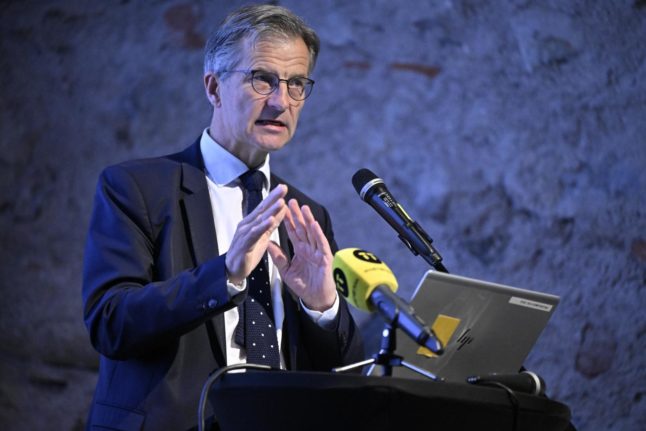Lower mortgage rates
The policy rate is not the same as the interest rate on your mortgage, although they are linked. In a policy rate prognosis from March, the bank predicted that the policy rate could drop to as low as 2.75 percent by the end of 2025, a drop of 1.25 percentage points since the beginning of 2024.
If mortgage rates drop by the same amount, you could expect a drop in the monthly cost of a 3 million kronor mortgage of around 3,000 kronor a month, not including the tax rebate for interest costs.
Higher property prices
As mortgage rates get lower, the housing market is likely to improve, as buyers know their monthly costs aren’t going to skyrocket due to ever-rising interest rates.
If you already own a home and you’re planning on buying and selling at the same time in the market, this will affect you less, as the price of your new home will most likely go up at the same rate as the price of your old home, but this is good news for anyone planning on selling.
It’s worse news for first-time buyers, who will have to save a larger deposit as prices go up, but on the other hand they’ll get lower mortgage rates and a more stable policy rate makes it easier to plan ahead for the future without being surprised by ever-increasing rates.
A stronger Swedish economy
The Riksbank’s decision to lower the interest rate is proof that the bank believes inflation is over – for now at least. This means that we can expect to see inflation remain at a more stable level, and we’re unlikely to see anything close to the ten percent inflation we saw at the end of 2022.
Lower inflation means that Swedish monetary policy won’t need to be as cautious or restrictive in the future, as the government and the central bank no longer need to put all their efforts into fighting inflation.
That’s not to say that authorities will start stimulating the economy just yet – they’re likely to proceed with caution to make sure inflation really is down for the long-term – but Thursday’s interest rate announcement indicates that the “economic winter” Finance Minister Elisabeth Svantesson warned of in September last year could be drawing to a close.
Is it all good news?
In the short term, the value of the krona is likely to worsen somewhat, as the central bank has lowered Sweden’s interest rate ahead of other major central banks. The krona weakened slightly after the bank’s announcement on Thursday, dropping 8 öre in value against the dollar and 7 öre against the euro.
This is good news for people with income in other currencies, but bad news for those of us who are paid in kronor.
Having said that, a stronger Swedish economy is good news for the value of the krona in the long term, although it’s difficult to predict when the krona will start to gain in value and by how much.
At the end of last year, Riksbank governor Erik Thedéen described the krona as “undervalued”, and underlined the importance of having strong foundations in the Swedish economy.
“The Swedish economy is, at its foundations, well-managed, and sooner or later this will lead to a stronger exchange rate,” he said. “Sweden has strong finances, a well-educated labour force, responsible salaries and a good underlying level of competition.”
“As anyone who has tried to predict the exchange rate knows, it’s genuinely difficult to say exactly when it will go up and by how much, but it can also happen quickly when the trend is broken and the krona starts to gain in value.”



 Please whitelist us to continue reading.
Please whitelist us to continue reading.
Member comments